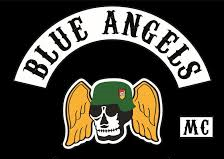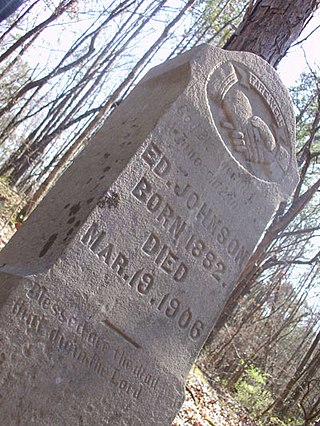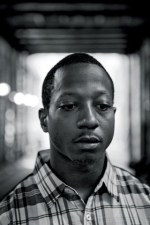Related Research Articles

Scotland is a country that is part of the United Kingdom. It contains nearly one-third of the United Kingdom's land area, consisting of the northern part of the island of Great Britain and more than 790 adjacent islands, principally in the archipelagos of the Hebrides and the Northern Isles. To the south-east, Scotland has its only land border, which is 96 miles (154 km) long and shared with England; the country is surrounded by the Atlantic Ocean to the north and west, the North Sea to the north-east and east, and the Irish Sea to the south. The population in 2022 was 5,439,842. Edinburgh is the capital and Glasgow is the largest of the cities of Scotland.
Life imprisonment is any sentence of imprisonment for a crime under which the convicted criminal is to remain in prison for the rest of their natural life. Crimes that result in life imprisonment are considered extremely serious and usually violent. Examples of these crimes are murder, torture, terrorism, child abuse resulting in death, rape, espionage, treason, illegal drug trade, human trafficking, severe fraud and financial crimes, aggravated property damage, arson, hate crime, kidnapping, burglary, robbery, theft, piracy, aircraft hijacking, and genocide.
Bail is a set of pre-trial restrictions that are imposed on a suspect to ensure that they will not hamper the judicial process. Court bail may be offered to secure the conditional release of a defendant with the promise to appear in court when required. In some countries, especially the United States, bail usually implies a bail bond, a deposit of money or some form of property to the court by the suspect in return for the release from pre-trial detention. If the suspect does not return to court, the bail is forfeited and the suspect may be charged with the crime of failure to appear. If the suspect returns to make all their required appearances, bail is returned after the trial is concluded.

Capital punishment in the United Kingdom predates the formation of the UK, having been used in Britain and Ireland from ancient times until the second half of the 20th century. The last executions in the United Kingdom were by hanging, and took place in 1964; capital punishment for murder was suspended in 1965 and finally abolished in 1969. Although unused, the death penalty remained a legally defined punishment for certain offences such as treason until it was completely abolished in 1998; the last to be executed for treason was William Joyce, in 1946. In 2004, Protocol No. 13 to the European Convention on Human Rights became binding on the United Kingdom; it prohibits the restoration of the death penalty as long as the UK is a party to the convention.
The Brink's-Mat robbery was one of the largest robberies in British history, with £26 million worth of gold bullion, diamonds, and cash stolen. It occurred at the Heathrow International Trading Estate, London, on 26 November 1983, from a warehouse operated by Brink's-Mat, a former joint venture between US security company Brink's and London-based company MAT Transport. The bullion was the property of Johnson Matthey Bankers Ltd. Micky McAvoy and Brian Robinson were convicted of armed robbery. Most of the gold has never been recovered. Lloyd's of London paid out for the losses, and several shooting deaths have been linked to the case.

His Majesty's Prison Belmarsh is a Category A men's prison in Thamesmead, southeast London, England. The prison is used for high-profile cases, particularly those concerning national security. Within the grounds is the High Security Unit (HSU), which consists of 48 single cells. It is run by His Majesty's Prison Service. The prison has been called "Britain's Guantanamo Bay" due to the long-term detention of terrorism suspects without charge. Considered the toughest prison in the UK, Belmarsh is also notoriously known as "Hellmarsh" due to the high number of physical and authority abuses reported by both the prison's inmates, and by human rights activists.
Tay Yong Kwang is a Singaporean judge of the Supreme Court. He was first appointed Judicial Commissioner in 1997, appointed Judge in 2003, and appointed Judge of Appeal in 2016. He was noted for being the presiding judge in several notable cases that shocked the nation and made headlines in Singapore. He was most recently re-appointed for a further two year term on the Court of Appeal from 3 September 2024.
Crime in the United Kingdom describes acts of violent crime and non-violent crime that take place within the United Kingdom. Courts and police systems are separated into three sections, based on the different judicial systems of England and Wales, Scotland, and Northern Ireland.
The Völkerstrafgesetzbuch, abbreviated VStGB, is a German law that regulates crimes against (public) international law. It allows cases to be brought against suspects under international criminal law provisions, meaning that suspects can be prosecuted even though both they and their victims are foreigners and the crime itself took place abroad.
Anthony Joseph Miller became the second-last criminal to be executed in Scotland when he was hanged at Glasgow's Barlinnie Prison on 22 December 1960. Miller had been convicted of murdering John Cremin at Queen's Park Recreation Ground in Glasgow on 6 April 1960. At 19 years of age, Miller was the last teenager to be executed in the United Kingdom.

The Blue Angels Motorcycle Club (BAMC) is an international outlaw motorcycle club formed in Glasgow, Scotland in 1963. The Blue Angels MC is the oldest outlaw biker club in Europe, and one of the largest and most powerful clubs in the United Kingdom. The club has chapters in Scotland, England, Belgium and Spain.

Moorov v His Majesty's Advocate1930 JC 68 is a Scots criminal and evidence law case that concerns admissibility of similar fact evidence. The High Court of Justiciary established the Moorov doctrine in its judgment, which is predominantly used in criminal prosecutions involving allegations of rape and sexual abuse.

On March 19, 1906, Ed Johnson, a young African American man, was murdered by a lynch mob in his home town of Chattanooga, Tennessee. He had been wrongfully sentenced to death for the rape of Nevada Taylor, but Justice John Marshall Harlan of the United States Supreme Court had issued a stay of execution. To prevent delay or avoidance of execution, a mob broke into the jail where Johnson was held, and abducted and lynched him from the Walnut Street Bridge.
Crime statistics in the United Kingdom refers to the data collected in the United Kingdom, and that collected by the individual areas, England and Wales, Scotland and Northern Ireland, which operate separate judicial systems. It covers data related to crime in the United Kingdom. As with crime statistics elsewhere, they are broadly divided into victim studies and police statistics. More recently, third-party reporting is used to quantify specific under-reported issues, for example, hate crime.

The history of violence against LGBTQ people in the United States is made up of assaults on gay men, lesbians, bisexuals, and transgender individuals, legal responses to such violence, and hate crime statistics in the United States of America. The people who are the targets of such violence are believed to violate heteronormative rules and they are also believed to contravene perceived protocols of gender and sexual roles. People who are perceived to be LGBTQ may also be targeted for violence. Violence can also occur between couples who are of the same sex, with statistics showing that violence among female same-sex couples is more common than it is among couples of the opposite sex, but male same-sex violence is less common.
The importance of corroboration is unique to Scots criminal law. A long-standing feature of Scots law, the requirement for corroborating evidence means at least two independent sources of evidence are required in support of each crucial fact before an accused can be convicted of a crime. This means, for example, that an admission of guilt by the accused is insufficient evidence to convict in Scotland, because that evidence needs to be corroborated by another source.

Kalief Browder was an African American youth from The Bronx, New York, who was held at the Rikers Island jail complex, without trial, between 2010 and 2013 for allegedly stealing a backpack containing valuables. During his imprisonment, Browder was kept in solitary confinement for 800 days.

The 2010 Kallang slashings refer to a series of four robberies committed by a group of four Malaysians from Sarawak, Malaysia in the night of 29 May 2010 and the early hours of the morning of 30 May 2010, mostly around Kallang Area, Singapore. In the robberies, there were a total of four victims – the first three victims were seriously injured and hospitalised while a fourth victim was killed.

Life imprisonment is a legal penalty in Singapore. This sentence is applicable for more than forty offences under Singapore law, such as culpable homicide not amounting to murder, attempted murder, kidnapping by ransom, criminal breach of trust by a public servant, voluntarily causing grievous hurt with dangerous weapons, and trafficking of firearms, in addition to caning or a fine for certain offences that warrant life imprisonment.
References
- ↑ According to William Roughead, "Trial of Dr. Pritchard – Notable Scottish Trials", the spelling should be stouthreif. See p.343, reference to the execution in front of New Prison of Dd.Little on 27 January 1831 for stouthreif.
- ↑ John H. A. MacDonald (1867), A practical treatise on the criminal law of Scotland
- 1 2 Sloan (25 August 2011). "Hamesucken is alive and well in Scots Law". Prout de Jure. Retrieved 8 July 2015.
- ↑ Bynorth, John (8 July 2015). "Man in court accused under ancient law". The Herald (Glasgow) . Retrieved 8 July 2015.
- ↑ "HMA v Nathan Shaw and John Lawrie".
- ↑ "Falkirk man jailed on rare hamesucken charge – this is what it means". 14 January 2022.
- ↑ "Inverness men jailed after 'appalling act of violence' sparked by wrong number". 28 May 2024.